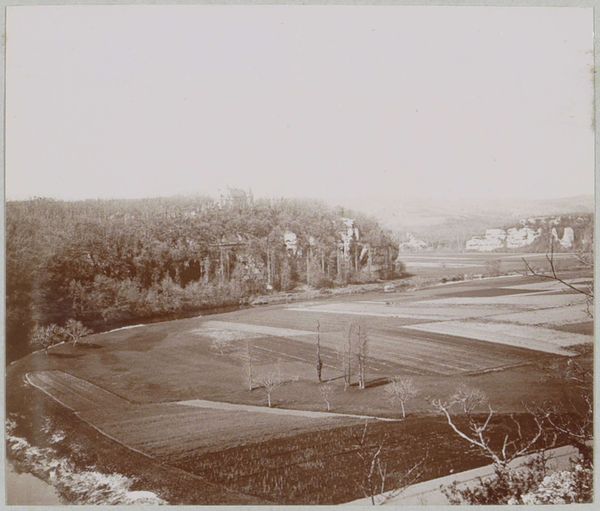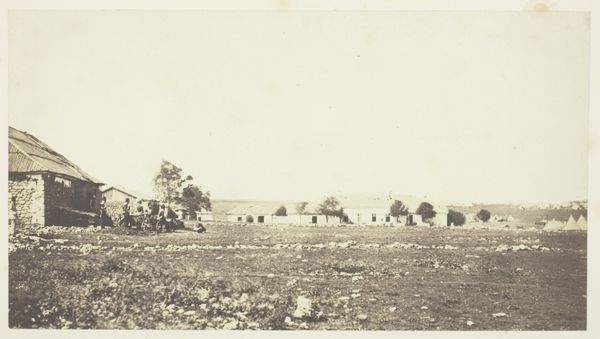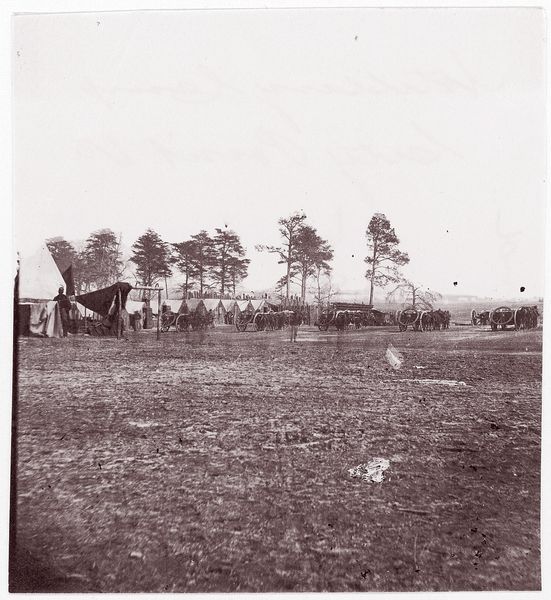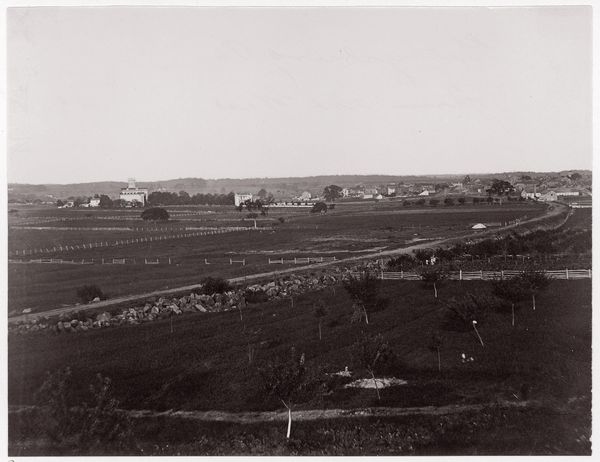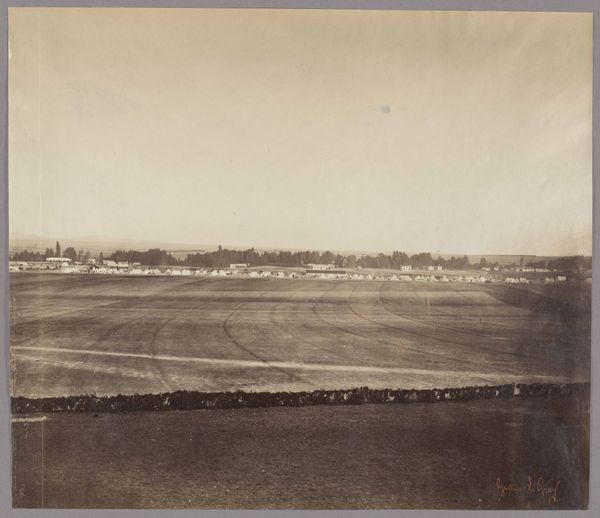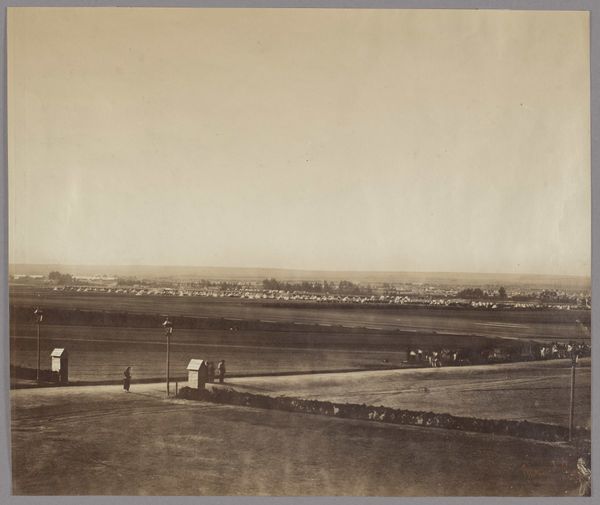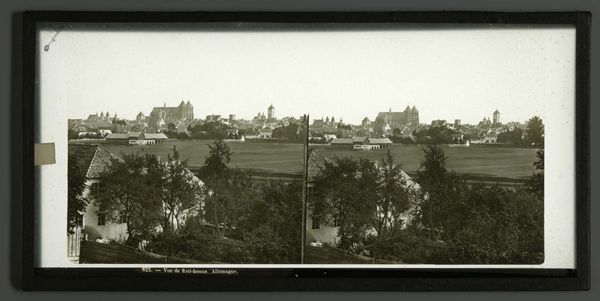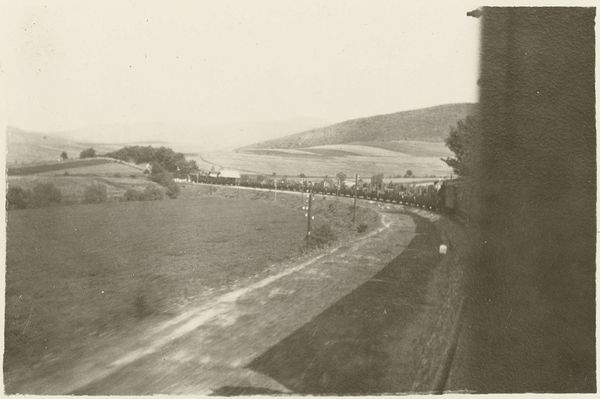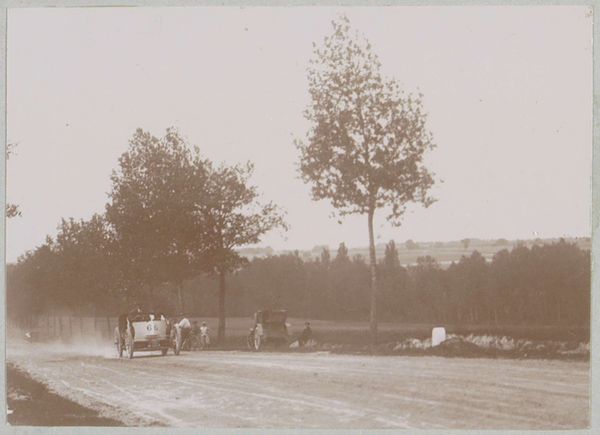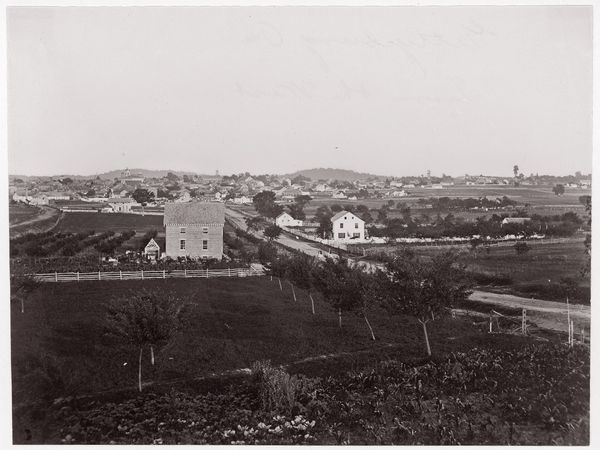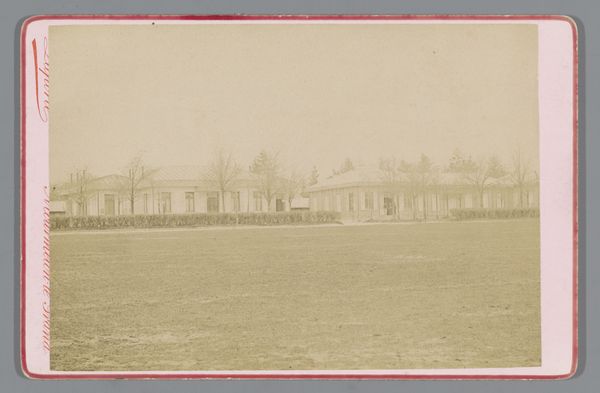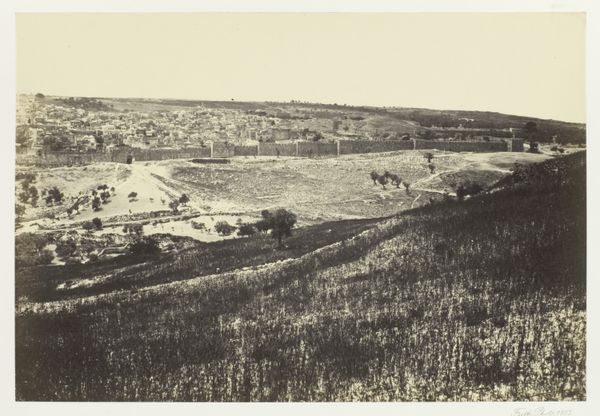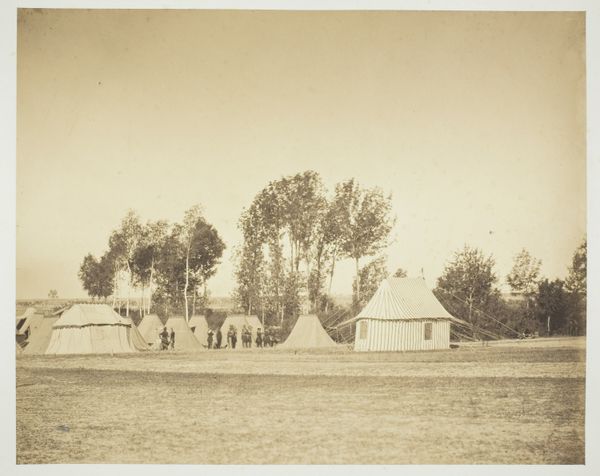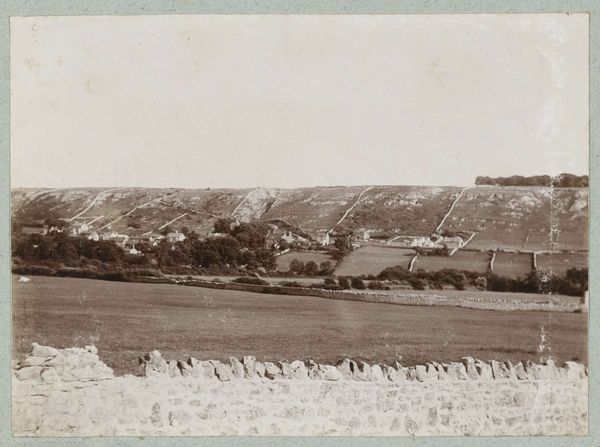
Gezicht op de ruïne van het Château d'Arques-la-Bataille bij Dieppe met grazende schapen 1896
0:00
0:00
delizy
Rijksmuseum
Dimensions: height 79 mm, width 109 mm
Copyright: Rijks Museum: Open Domain
Editor: Here we have "View of the Ruins of the Ch\u00e2teau d'Arques-la-Bataille near Dieppe with Grazing Sheep," taken in 1896. It's a gelatin-silver print. I'm immediately struck by the contrast between the ruined castle and the pastoral scene with the sheep. How do you interpret this work, particularly in terms of its formal qualities? Curator: The interplay of light and shadow dictates the viewer's experience. Note how the photographer uses the sharp focus on the ruins and the sheep to draw our eyes upward, almost as if following an invisible diagonal line. This compositional strategy creates a sense of depth and draws attention to the textures and tonalities within the photograph itself. Does this observation resonate with your perception of the image? Editor: Absolutely, and it gives the photo an eerie but peaceful quality. What does the angle of the composition communicate, focusing up a steep hillside? Curator: It enhances the grandeur of the ruins and the idyllic nature. The angle positions us, the viewers, as subordinate, perhaps, emphasizing the historical weight and the timelessness of the scene. Now consider how the varying tones – from the almost bleached sky to the dark foreground – establish a pictorial tension. How does that effect inform your reading? Editor: I can see how the composition leads us from the present in the foreground towards the past on the hill. It’s less about a specific narrative and more about the pure visual experience, the light, shadow, and form of the elements together, really affecting its feel and my experience of it. Curator: Precisely. Understanding how these formal elements contribute to the overall aesthetic is paramount to appreciating the photograph's enduring impact. Editor: I’m glad to have explored the formal construction. I see a lot more here than just ruins and sheep.
Comments
No comments
Be the first to comment and join the conversation on the ultimate creative platform.
